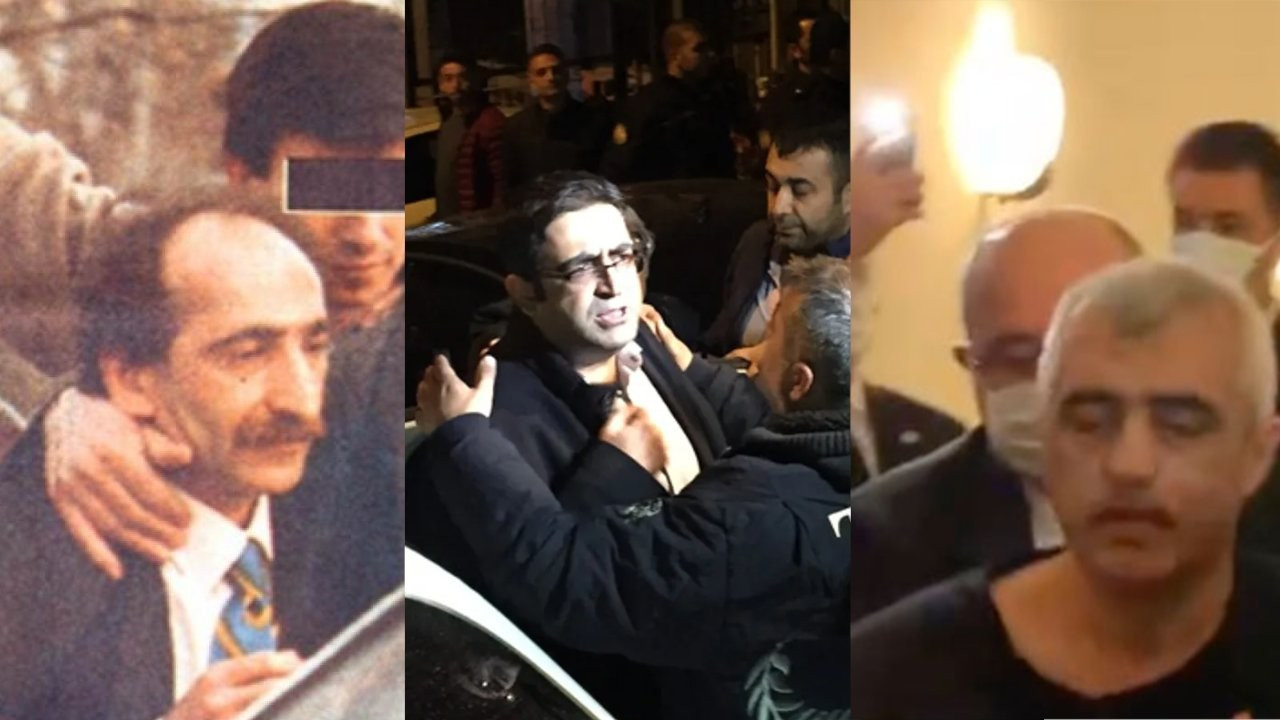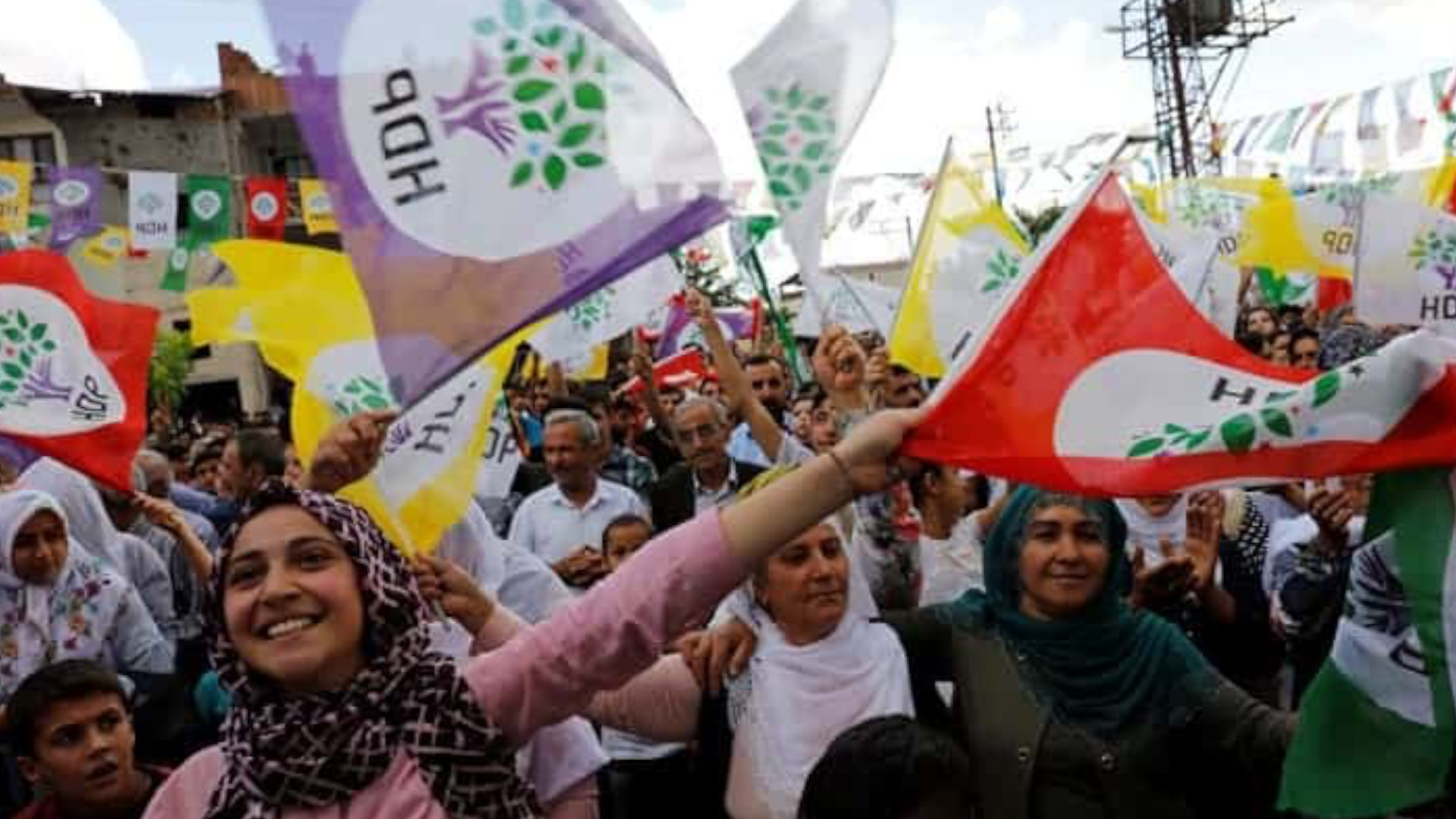72 percent of Kurds disapprove of closure case against HDP, survey finds
Some 71.8 percent of Turkey's Kurds have a negative stance on the authorities' move to close the Peoples' Democratic Party (HDP), while 33.5 percent see the expulsion of HDP MP Ömer Faruk Gergerlioğlu from the parliament as a "coup on the political will," according to a recent survey.
Duvar English
Some 71.8 percent of Kurds disapprove of the Turkish authorities' move to close the Peoples' Democratic Party (HDP), according to a survey conducted by the Diyarbakır-based Socio-Political Field Research Center, online news portal Bianet reported on March 29.
The survey was conducted in Turkey's southeastern provinces of Diyarbakır, Urfa, Batman, Mardin, Van, Kars, Siirt, Şırnak, Hakkari, Muş and Bingöl between March 18-21.
Some 30 percent of ruling Justice and Development Party (AKP) voters, 67.3 percent of main opposition Republican People's Party (CHP) voters, 94.6 percent of HDP voters, 18.5 percent of Nationalist Movement Party (MHP) voters, 59.4 percent of İYİ (Good) Party voters, and 50 percent of Felicity Party voters are against the HDP's closure, according to the survey.
The survey participants were further asked about the results Turkey would face should the HDP be closed. Some 36.8 percent of the surveyed said, “Turkish democracy would receive a blow,” while 13.1 percent said, “The possibility of the Kurdish problem through democratic and peaceful ways would receive a blow.” Another 12.8 percent said, "Tension would increase in Turkey,” while 11.5 percent said, “Emotional fracture among Kurds would deepen,” and 9.1 percent said, “Political representation of Kurds would weaken.”
The survey participants were also asked to give an opinion on the expulsion of HDP MP Ömer Faruk Gergerlioğlu from the parliament.
Some 33.5 percent said they see the move as a “coup on the political will,” while 28.3 percent described it as an “implementation that occurred as a result of the AKP-MHP's alliance political stance.”
Some 22.6 percent of the surveyed said the move against Gergerlioğlu is a “mandatory result of the legal process,” while 15.1 percent defined it as an “implementation that occurred without the completion of the legal process.”
The Socio-Political Field Research Center's coordinator Yüsel Genç said that Turkey's Kurds are pessimistic about the course of events in the country and disturbed about the AKP's monopoly over state power.
“They say that the instability in the politics is reflecting on unemployment and unemployment. They say, 'If stability were to prevail in the politics, the economy would not be in this situation,'” Genç was quoted as saying by Bianet.
Not only opposition voters but also AKP and MHP voters see the move against the HDP and Gergerlioğlu as a “risk for Turkey's future,” Genç said.
A top Turkish prosecutor filed a case with the Constitutional Court on March 17 demanding the closure of the HDP, in the culmination of a years-long clampdown on parliament's third-largest party. On the same day, Turkish parliament stripped Gergerlioğlu of his status as a lawmaker.
Turkey has a long history of shutting down political parties which it regards as a threat and has in the past banned a series of other pro-Kurdish parties.
The HDP has recently come under intensified pressure, with MHP leader Devlet Bahçeli calling for it to be banned over alleged ties to the PKK.
That has coincided with falling poll support for the AKP and its nationalist allies as President Recep Tayyip Erdoğan's government battles the economic fallout of the coronavirus pandemic. Elections are not scheduled until 2023.

 Turkey's never-changing approach to the Kurdish issue in three picturesPolitics
Turkey's never-changing approach to the Kurdish issue in three picturesPolitics A Turkey without Kurds: Reforms to deform democracyWorld
A Turkey without Kurds: Reforms to deform democracyWorld